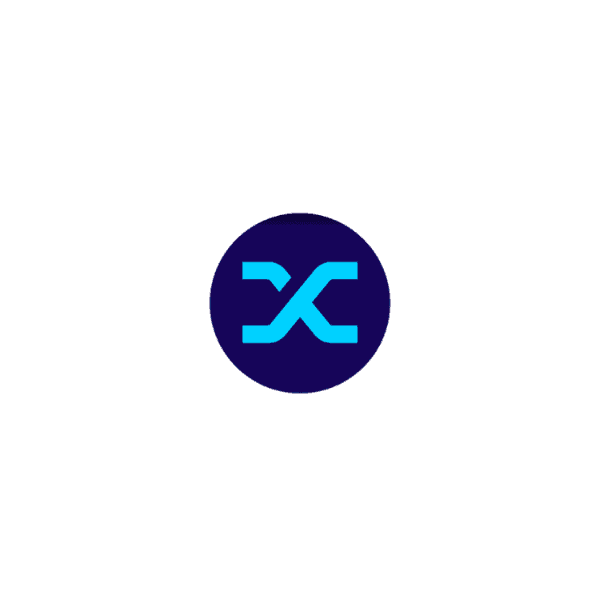Shift into DeFi with ShapeShift
Enter and exit top DeFi protocols in one-click with ShapeShift
Featured Protocols


Butter Network
Butter Network is an omnichain interoperability protocol that powers seamless, low-cost crypto swaps across multiple blockchains. By integrating Butter’s zero-knowledge light client technology, ShapeShift users can trade assets multichain with fast settlement, transparent fees, and no custody risk—directly from their self-custodial wallets.


Maya Protocol
Maya Protocol is a decentralized, non-custodial liquidity and exchange protocol built on the Cosmos SDK that enables cross-chain swaps of native assets like BTC, ETH, and ATOM without wrapping, bridges, or custodians. It operates similarly to THORChain but features a permissionless validator set, no slashing, and uses its native token CACAO for liquidity pairing, bonding, and incentives.

Relay
Relay is a cross-chain payments system that enables instant, low-cost bridging and cross-chain execution. It works by connecting users with relayers - financial agents that act on users’ behalfs across chains in exchange for a small fee. Relay is designed to minimize gas costs and execution latency, making it ideal for price-sensitive applications, such as payments, bridging, nft minting and gas abstraction.
Choose your preferred protocol


Morpho
Morpho is a peer-to-peer DeFi lending layer that enhances existing lending markets like Compound and Aave. It replaces pooled lending with matching engines that connect lenders and borrowers directly, offering better rates for both sides. Morpho Blue, the latest evolution, introduces isolated lending vaults with custom risk parameters. It’s built for users who want more control, better yield, and capital efficiency.


Lido
Lido Finance is at the forefront of liquid staking solutions on Ethereum, offering an efficient and accessible platform for ETH holders. Its primary product, staked-ETH (stETH), represents a significant innovation in the DeFi space, allowing users to earn staking rewards while maintaining liquidity. Unlike traditional banking, DeFi with Lido is: Peer-to-Peer, directly connect with others without a middleman. Borderless, and accessible to anyone, anywhere, without restrictions. Private, and allows you maintain privacy while participating in the financial ecosystem.


IPOR
IPOR (Inter Protocol Overhead Rate) is a decentralized interest rate index protocol that serves as a benchmark for onchain fixed-income DeFi markets. Built on Ethereum and focused on credit derivatives, IPOR enables interest rate swaps, allowing traders and institutions to hedge or speculate on rate changes across key assets like USDC, USDT, and DAI. The protocol introduces transparent, onchain yield curve data and powers a growing ecosystem of structured financial products. IPOR is a foundational layer for fixed-income DeFi, similar to LIBOR in traditional finance—but decentralized and composable.


Curve
Curve is a decentralized exchange optimized for stablecoins and like-kind assets, offering low slippage and high capital efficiency. Its AMM design concentrates liquidity around target prices, making it ideal for swapping assets like USDC, DAI, and USDT. CRV, Curve’s native governance token, can be locked for veCRV to earn protocol fees and vote on gauge weight. Curve’s pools power DeFi staples from stablecoin swaps to LSD pairings.


Aave
Aave is a decentralized lending protocol that supports collateralized and uncollateralized loans across Ethereum and L2s. Users can deposit assets to earn yield or borrow against crypto with flexible terms. It pioneered flash loans—instant, trustless borrowing without upfront collateral. The AAVE token governs upgrades and risk.


Jito
Jito is a Solana-based liquid staking protocol that issues JitoSOL, a yield-bearing token backed by staked SOL. What sets Jito apart is its integration of MEV rewards, giving users enhanced staking returns. Validators share MEV revenue with stakers, boosting yield while supporting network decentralization. With fast liquidity and strong composability, Jito is a top-tier staking solution in the Solana ecosystem.


Yearn
Yearn is a decentralized suite of products helping individuals, DAOs, and other protocols earn yield on their digital assets. Yearn is the epitome of true DeFi. Peer-to-Peer, directly connect with others without a middleman. Borderless, and accessible to anyone, anywhere, without restrictions. Private, and allows you maintain privacy while participating in the financial ecosystem.


Ethena
Ethena is a DeFi platform that issues USDe, a synthetic, yield-bearing stablecoin designed to hold its dollar peg through delta-neutral hedging strategies. Governance and utility are driven by the ENA token, giving holders control over risk parameters and fee revenue. By combining onchain collateral with perpetual futures, Ethena creates a capital-efficient alternative to fiat-backed stablecoins.


Rocket Pool
Rocket Pool is a decentralized Ethereum staking protocol offering permissionless validator participation. Users can stake ETH and receive rETH, a liquid staking token that accrues yield over time. Rocket Pool enables mini-pools, allowing users to stake with just 8 ETH and help decentralize the network. As a community-first platform, Rocket Pool emphasizes trustless staking and protocol governance.


Zcash
Zcash is a privacy-focused cryptocurrency that offers the option of shielded transactions, using zero-knowledge proofs to keep sender, receiver, and amount confidential. Built on a decentralized blockchain, Zcash gives users the freedom to control their financial data while enabling fast and secure digital payments.


Sparklend
Sparklend is a decentralized lending protocol built on Spark, a DeFi platform powered by MakerDAO. It allows users to borrow DAI and other stablecoins at competitive rates by depositing ETH or LSDs (liquid staking derivatives) as collateral. Spark’s close integration with Maker’s DAI liquidity engine allows for highly capital-efficient borrowing. Sparklend prioritizes stability, composability, and low fees for power users and newcomers alike.


Uniswap
Uniswap is the leading decentralized exchange (DEX) on Ethereum, powered by automated market makers (AMMs). It allows users to swap tokens directly from their wallets by interacting with liquidity pools. With the launch of Uniswap v3, users get concentrated liquidity, better execution, and reduced slippage. UNI is Uniswap’s governance token, enabling community control over fees, upgrades, and treasury.


Fluid Finance
Fluid Finance is a decentralized finance platform that bridges traditional fiat banking with web3-native crypto capabilities. Designed to replace outdated financial systems, Fluid offers users a non-custodial app where they can store digital dollars (DUSD), send global payments instantly, and earn real-time yields onchain. Fluid's ecosystem is powered by the DUSD token, a fully backed digital dollar that can be redeemed for fiat or used in DeFi. Built for seamless TradFi–DeFi convergence, it allows users to move between crypto and fiat rails in one click—without banks, middlemen, or delays.


THORChain
THORChain is a decentralized liquidity protocol that facilitates native cross-chain swaps between assets like BTC, ETH, AVAX, LTC, and more—no wrapping, bridging, or centralized custody. It uses a Tendermint-based consensus and its native RUNE token to bond liquidity and secure the network. Liquidity providers earn yield from swap fees, while traders benefit from fast, decentralized trades with minimal slippage. THORChain has become a foundational layer for cross-chain DeFi, bridging liquidity across Layer 1 ecosystems.


Chainflip
Chainflip is a decentralized protocol designed for native cross-chain swaps without wrapping assets or relying on intermediaries. It supports real asset swaps across chains like Ethereum, Bitcoin, and Solana using an MPC-based vault architecture. Chainflip enables trustless bridging with liquidity pools and price discovery on its own platform. Unlike most DEX aggregators, it offers true native-to-native execution.


Bancor
Bancor is a decentralized AMM that introduced the concept of single-sided staking and impermanent loss protection. Liquidity providers can deposit a single token into a pool and earn fees without worrying about token ratios. The protocol uses its native BNT token to balance liquidity across pools and maintain depth. Bancor aims to simplify DeFi participation for casual and long-term LPs.


Etherfi
EtherFi is a decentralized liquid staking protocol that lets users stake ETH while retaining full control over their validator keys. It issues eETH, a liquid staking token that earns staking rewards and can be used across DeFi. EtherFi uniquely enables restaking and EigenLayer participation while keeping users non-custodial. It’s a next-gen alternative to traditional ETH staking providers.


Synthethix
Synthetix is a protocol for creating and trading synthetic assets—onchain representations of real-world currencies, commodities, and crypto. Users lock up SNX tokens as collateral to mint synths like sUSD, sETH, and sBTC. These synthetic assets track external price feeds and enable leveraged or inverse trading. Synthetix underpins many advanced DeFi strategies, especially on Optimism and Ethereum.


Bebop
Bebop is a decentralized trading platform and cutting-edge execution engine specifically designed to deliver institutional-grade trading quality within DeFi. Bebop utilizes a competitive solver auction model where multiple professional algorithms vie in a private environment to find the best price and execution path for a user's trade. This process achieves key advantages: it guarantees users receive the exact quoted price with zero slippage, facilitates complex multi-token swaps in a single, efficient transaction, and provides robust MEV protection by bypassing the public mempool where predatory front-running and sandwich bots operate. Bebop leverages sophisticated routing to offer users optimal, private, and price-guaranteed execution.


Maple
Maple Finance is an undercollateralized lending platform designed for institutions. It offers permissioned lending pools managed by professional delegates, with real-world borrowers like market makers and crypto firms. MPL is Maple’s governance token, used for staking and voting on protocol changes. Maple brings credit-based lending to DeFi without relying on centralized intermediaries.


Compound
Compound is a decentralized lending protocol that lets users earn interest on crypto assets or borrow against them. Depositors supply assets to liquidity pools and receive cTokens in return, which accrue yield in real time. Borrowers lock up collateral to access overcollateralized loans, creating an open, algorithmic money market. Compound is governed by COMP holders who vote on protocol upgrades and interest rate models.


Pendle
Pendle Finance is a decentralized finance (DeFi) protocol that enables users to tokenize their yield-bearing assets, allowing them to trade, lend, or use these tokens as collateral. Unlike traditional banking, DeFi with Pendle is: Peer-to-Peer, directly connect with others without a middleman. Borderless, and accessible to anyone, anywhere, without restrictions. Private, and allows you maintain privacy while participating in the financial ecosystem.


Seamless Finance
Seamless is a decentralized lending and borrowing platform built on Base, designed to offer permissionless access to capital for DeFi users. With features like isolated lending markets, capital-efficient collateral management, and non-custodial architecture, Seamless gives users complete control over their assets while earning or accessing liquidity. As one of the native lending markets on Base, Seamless supports a growing ecosystem of assets and is optimized for gas efficiency and cross-protocol integrations. It’s a go-to solution for Base-native DeFi traders looking to borrow, lend, or loop strategies without leaving the L2.


Kamino
Kamino Finance is a DeFi yield optimizer built on Solana, focused on concentrated liquidity and automated position management. It simplifies LPing on decentralized exchanges like Orca and Raydium by auto-compounding and auto-rebalancing. Users earn optimized yield without needing to manually manage liquidity ranges. Kamino is ideal for passive LPs who want higher returns with lower effort.


Jupiter
Jupiter is Solana’s top DEX aggregator, routing trades across every major Solana liquidity source to find the best execution. It supports limit orders, perpetuals, and cross-chain swaps via its growing ecosystem of tools. With lightning-fast speed and negligible gas fees, Jupiter offers a best-in-class DeFi trading experience. Whether you’re swapping SOL tokens or bridging in from another chain, Jupiter is Solana’s go-to liquidity engine.


Kelp DAO
Kelp DAO is a restaking protocol that enhances rewards on liquid staking tokens (LSTs) by enabling users to participate in EigenLayer while maintaining liquidity. It supports assets like stETH, rETH, and cbETH, issuing rsETH in return—an LRT (Liquid Restaked Token) that earns both staking and restaking rewards. Kelp streamlines restaking access without requiring users to delegate or actively manage validators. It’s designed for ETH holders looking to maximize passive yield across protocols.


Euler
Euler is a decentralized lending protocol on Ethereum that enables users to lend and borrow a wide range of crypto assets, including long-tail ERC-20 tokens. Unlike traditional lending platforms, Euler uses permissionless asset listings, reactive interest rates, and isolated risk markets to allow users to create lending markets for nearly any token. With innovative features like protected collateral and MEV-resistant liquidations, Euler gives DeFi users fine-grained control over leveraged positions. As an Ethereum-native protocol, it caters to advanced traders and yield farmers seeking flexibility and capital efficiency.


NEAR
NEAR is a high-performance, sharded Layer 1 blockchain designed for mass adoption through radical simplicity. Unlike traditional networks, NEAR features human-readable account names (e.g., user.near) and pioneering Chain Abstraction, which allows one NEAR account to sign transactions across multiple chains like Bitcoin and Ethereum. It provides a developer-friendly environment where complex backend processes are hidden, making Web3 feel as intuitive as using a modern web app.


Symbiosis
Symbiosis is a multichain liquidity protocol that facilitates cross-chain swaps across EVM and non-EVM chains. It uses relayers and liquidity routers to ensure seamless token bridging without needing wrapped assets or manual bridging. Symbiosis supports swaps across major chains like Ethereum, BNB Chain, Avalanche, and Polygon. It focuses on unified liquidity and ease of use across diverse blockchain ecosystems.


Pancakeswap
PancakeSwap is the leading decentralized exchange on Binance Smart Chain, known for fast and low-cost token swaps. Built on automated market maker technology, it allows users to trade BEP-20 tokens, provide liquidity, and earn rewards through yield farming. With its playful branding and deep liquidity, PancakeSwap powers much of BSC’s DeFi activity.


Beefy
Beefy is a multichain yield optimizer that enables users to maximize returns on their crypto assets through auto-compounding vault strategies. Operating across chains like Arbitrum, Optimism, Polygon, Avalanche, and more, Beefy aggregates DeFi yield opportunities and bundles them into vaults that automatically reinvest earnings for compound growth. Users deposit LP tokens or single assets into Beefy vaults and earn passive income without active management. With support for stablecoins, native assets, and exotic pairs, Beefy is a cornerstone of DeFi yield farming across ecosystems.


Summer.Fi
Summer.fi (formerly Oasis.app) is a frontend for MakerDAO that helps users borrow DAI, generate vaults, and manage DeFi positions. It allows for creating and automating leverage, stop-loss, and take-profit strategies around stablecoin-backed collateral. Summer.fi abstracts away the complexity of CDPs while offering access to DeFi-native automation. It’s a power tool for serious DAI users and vault strategists.


Ondo Finance
Ondo Finance bridges traditional finance and DeFi by tokenizing real-world assets (RWAs) like U.S. Treasuries and corporate bonds. Its flagship products include OUSG (tokenized short-term U.S. Treasuries) and USDY (yield-bearing stablecoin backed by U.S. assets). Ondo brings institutional-grade risk management and transparency to onchain finance. It’s a leading solution for earning yield from RWAs on Ethereum and other chains.


Portals
Portals is a developer-first DeFi API that simplifies building advanced Web3 apps. With one interface, access multiple EVM chains, real-time and historical token data, and complex DeFi assets. Low-code tools cut friction so teams can launch and scale multi-chain DeFi products fast.


Term Finance
Term Finance is a decentralized fixed-rate borrowing and lending protocol that operates through onchain auctions. Unlike variable rate lending markets, Term Finance enables users to lock in fixed interest rates over specific durations, offering predictability and capital efficiency for both lenders and borrowers. Built on Ethereum and optimized for DeFi power users, it facilitates institutional-grade credit markets without intermediaries. Term’s auction-based clearing mechanism ensures transparent rate discovery and efficient capital allocation.


Eigen Layer
EigenLayer is a restaking protocol built on Ethereum that lets users repurpose staked ETH and liquid staking tokens (LSTs) for additional yield. By opting into new validation services, stakers secure emerging modules while compounding returns. EigenLayer helps bootstrap decentralized infrastructure with ETH security while rewarding early participants. It's become a foundational layer in the Ethereum restaking economy.


0x
0x is a decentralized exchange protocol and API infrastructure that aggregates liquidity from leading DEXs like Uniswap, Curve, and Balancer. It powers efficient, gas-optimized swaps for thousands of ERC-20 tokens across Ethereum and Layer 2s. Developers use 0x to build scalable DeFi apps with access to deep, multi-source liquidity. With MEV protection and flexible order types, 0x remains one of the most robust DEX toolkits in Web3.


CoW Protocol
CoW Protocol is a decentralized exchange aggregator that uses batch auctions and coincidence of wants (CoW) to match trades peer-to-peer without relying solely on liquidity pools. It routes through major DEXs like Uniswap, Balancer, and Curve, but avoids MEV and slippage by matching complementary orders directly. The protocol’s native token, COW, is used for governance and potential fee rebates. Built on Gnosis, CoW Protocol offers a unique, efficient way to trade assets across Ethereum and L2s.

Your multichain crypto home base.
Or download the app




